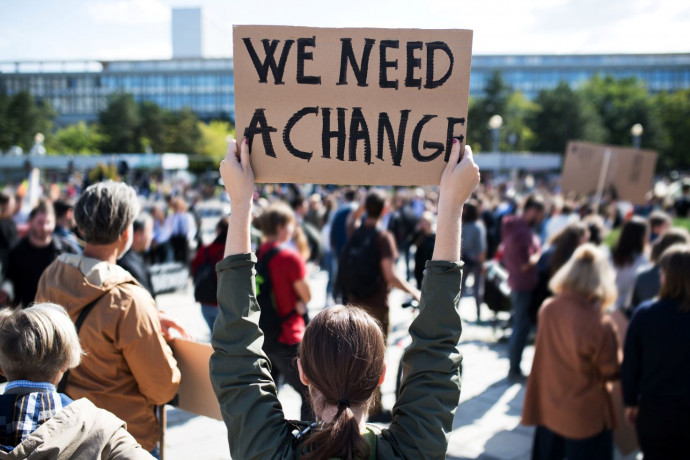Research
Published 13 October 2022Fierce hope: Youth activism in Aotearoa

Social movements can create the conditions for fostering collective hope because they allow people to share and acknowledge the emotional labour of activism. Paying attention to activists’ emotional work helps us to understand what sustains them
Fierce Hope is an upcoming book which explores social movements in Aotearoa. The book is based on Marsden-funded research about youth activism, led by Professor Karen Nairn (Te Kura Ākau Taitoka/College of Education, University of Otago). It opens the doors on six influential activist groups: ActionStation, Generation Zero (Auckland), InsideOUT Koāro, JustSpeak, Protect Ihumātao, and Thursdays in Black (University of Auckland). These movements address an array of urgent issues, from indigenous rights to the justice system and imprisonment; from climate change to gender and sexual inequalities.
Over the last few years (2018-2021) Professor Nairn has worked on this project together with Professor Joanna Kidman (Victoria University of Wellington), Dr Carisa Showden (University of Auckland), Dr Judith Sligo and Kyle Matthews (both from the University of Otago). They spent time with each group, attending hui and campaigns; following their social media and websites; and exploring the diverse ways they communicated their vision and actions. They interviewed 90 people aged 18 to early 30s who explained vividly what future they want for our country and how we can get there. The research and resulting book shine a light on young people’s activism in Aotearoa in these unsettling political times. Their voices convey hope, anger, despair and anxiety– emotions which informed and galvanised their activism.
Explicit acknowledgement of hopelessness, frustration, despair and sadness helps activists identify the obstacles to change, and can help equip them to tackle these obstacles. Being hopeful in a critical way can be useful in avoiding burnout, by acknowledging and then counterbalancing the overwhelming challenges of achieving change. The team concluded that hoping critically is a useful way of understanding what practices sustain groups in the difficult work of social change.
Counteracting burnout is important to these groups because activist turnover has a big impact on collectives and group dynamics. The groups in the study were mainly composed of people in their teens and twenties; Protect Ihumātao was the only multi-generational group. Over the research period they all experienced turnover in membership, including the loss of the valuable contributions of experienced activists. A constant churn of people arriving and disappearing also makes it difficult to establish a sense of community and to share the work.
Despite these challenges the team feels positive about the role of the collective in activism. All of the groups in the study continued to be active as the research team reflected on their findings while writing Fierce Hope. The resolution of the whenua at Ihumātao was in the hands of mana whenua, the Kīngitanga and government. The Zero Carbon Act would now be tested in terms of its implementation, and Generation Zero Auckland saw a continued role for its input. ActionStation continued hosting petitions and creating responses to social justice issues under a new director. JustSpeak had appointed new staff and continued its work to change the public narrative on punishment. InsideOUT Kōaro employed several new staff, and further developed ways of improving the world for rainbow young people, including producing resources for primary, intermediate and Christian schools.
Over the time that they shared their stories with the project team, all six groups were working against what many would have viewed as insurmountable odds. Nevertheless, they persisted. Although each group faced unique challenges and opportunities, they were united by a fierce hope for a better world and the belief it can be achieved by working together in community.
These groups were part of creating progressive social change in Aotearoa at a particular time in our history. This project provides important insights into the immense demands of activism, and will help inform how we imagine radical new ways of living in Aotearoa.
Fierce Hope: Youth Activism in Aotearoa will be published in November 2022
Additional information: Click here to go to the Bridget Williams Books page for the book Fierce Hope: Youth Activism in Aotearoa
RESEARCHER
Karen Nairn
ORGANISATION
Te Whare Wānanga o Ōtākou University of Otago
FUNDING SUPPORT
Marsden Fund
CONTRACT OR PROJECT ID
UOO1730
